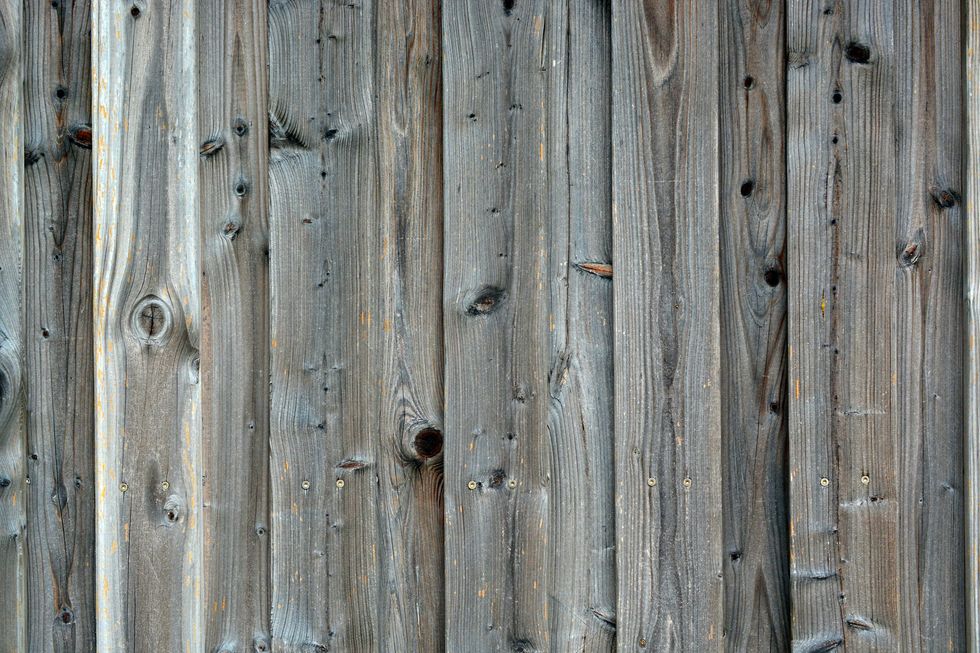Poverty is a direct attack on the ideal of the American Dream. Unfortunately, it can be difficult to dig oneself out of the hole of poverty so as to reach that ideal. Part of the American Dream is to own a house, as I discussed earlier, and this slight-but-not-quite grasp of the American Dream by Troy and his family is a stressor on Troy and ultimately effects his family due to his actions toward them, Cory and Rose in particular. In the description of the setting, the house is described as ancient and held within a small alley.
The wooden porch is poorly painted, and the porch, though sturdy, is asymmetrical. A baseball bat, the most popular American pastime and a constant reminder of Troy’s and society’s failures leans forgotten on a tree, while further fences are prepared to be built and two oil drums serve as garbage cans.
This entire description is a symbol of the depression and the futile Sisyphustic marching-on of the Maxson’s, especially Troy.
Money is also related to perception as well, status, the perception of one by other people, is a primary motivator as to the chasing of the American Dream, no matter how impossible this ideal is. Troy yells at Cory, saying he doesn’t need to like him, just like his boss who pays him.
Troy owes Cory money like his boss owes him money. Really, jealousy is the prime motivator here, and frustration over his failed state, as well as the perceived losing of his manhood to a boy growing into a man.
August Wilson’s play is named “Fences” for a reason. There are multiple fences that trap the Maxson’s within the torture chamber of an ideal that Troy failed to achieve.
The first is the American Dream itself, the impossible and exaggerated ideal. Though it is a motivator, it is also a fence itself, as it is a perfect ideal that can never be reached, especially considering the other two major fences of race and poverty.
This impossibility, and the shabby reminder of a house, tortures Troy and, subsequently, the Maxinson family, since he has only been able to grasp the ideal with a slight hold, as detailed in the setting description in the beginning of the play.
The positive that came from Troy’s chase for the American Dream was his buying of the house, but this also didn’t mean much, because his brother’s war pension was what allowed him to buy it, and he knows this.
Race also limits the Maxinson family due to discriminatory practices, both colloquial and systematic. Troy’s injured pride and manhood, and the torture he receives from his failure of achieving the American Dream, partially stems from his desire and failure to become a Major League baseball player. He was thwarted not by lack of ability, but because of segregation, completely taking the result out of his control and thus frustrating and angering him.
Troy kills Cory’s dream partially out of jealousy, but also a concern for his wellbeing, plus a pessimistic outlook based on his experiences with discrimination in sports. Their race also traps the Maxson’s in poverty, as opportunities are denied to Troy, the main caregiver, both in his past attempt at a professional baseball career and as a garbage collector.
Poverty is another major fence, because poverty does not allow for further education (something that Cory’s football career could have overcome), and thus it relegates Troy to the barely fulfilled ideal of the American Dream and harms the Maxinson’s because it hurts Troy so terribly. The essence of August Wilson’s play “Fences” is the failure to grasp the American Dream.
The American Dream, the impossible ideal, is not only not achieved, but the torture that results from this failed ideal is a fence in and of itself for the Maxson’s. The reminder that their dilapidated house, and the reason they have it (Gabriel’s pension from his life-altering war-time injury) further angers Troy, and his suffering extends to the family through his selfish actions like his cheating on Rose with Alberta and the illegitimate baby that resulted from that extramarital affair.
His denial of a successful future for Cory because of jealousy and a habit of being stuck in the past, which causes him to teach his posterity to take the same precautions he was forced to take and to take the precautions he didn’t think to pay attention to.















